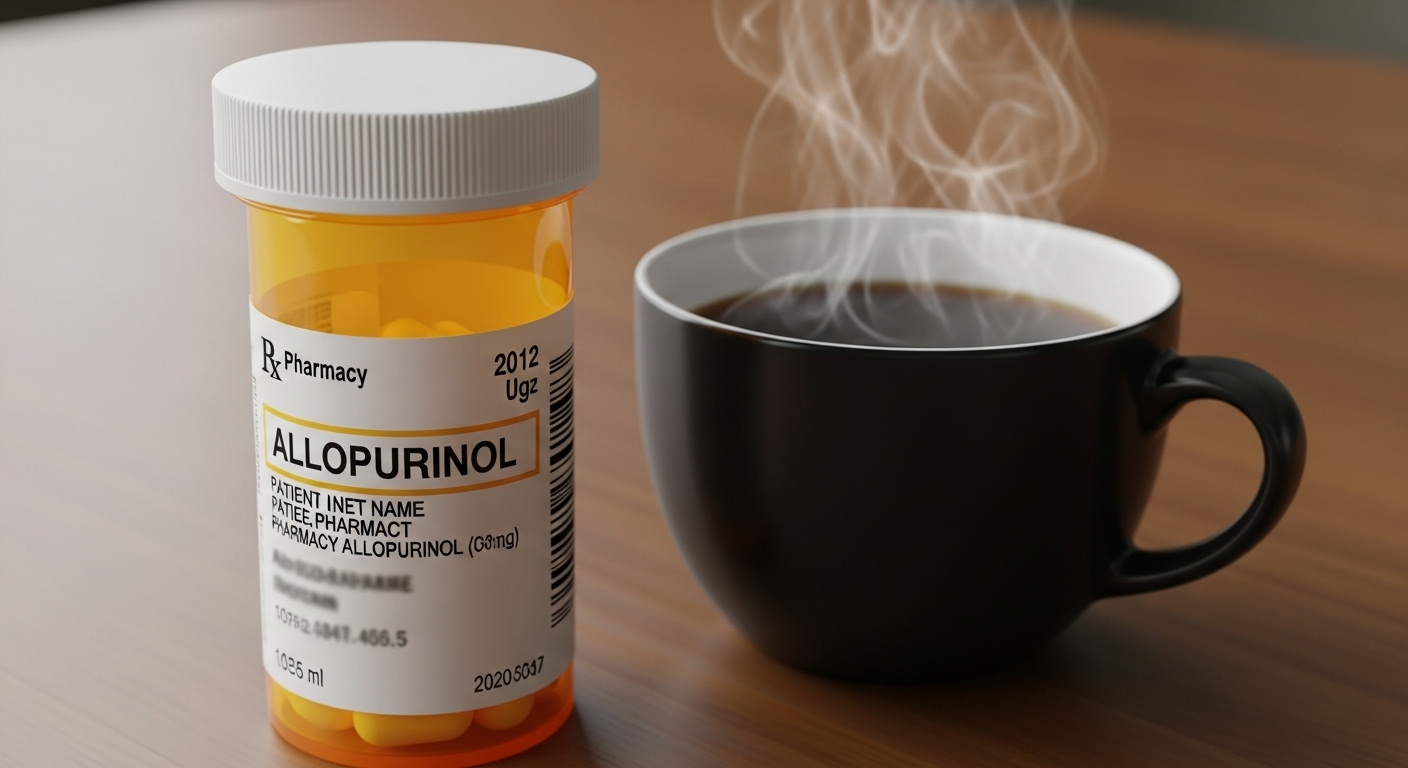Dr. Kumar’s Take
This study shows that coffee drinkers may have lower uric acid levels and reduced risk of hyperuricemia, a condition that often leads to gout. Interestingly, it was not caffeine but other compounds in coffee, like antioxidants such as chlorogenic acid, that seemed to drive the benefit. Tea and overall caffeine intake had no effect. For patients at risk of gout, adding coffee to the diet could be a safe, simple lifestyle change.
Key Takeaways
✔ Heavy coffee drinkers (>6 cups/day) had uric acid levels about 0.36 mg/dL lower than non-drinkers.
✔ Risk of hyperuricemia was nearly cut in half with high coffee intake.
✔ Tea and total caffeine intake did not affect uric acid.
✔ Decaffeinated coffee still lowered uric acid slightly, suggesting benefits beyond caffeine.
Actionable Tip
If you are prone to gout or have elevated uric acid, consider making coffee (caffeinated or decaf) a regular part of your morning routine. Skip sugary additives, and talk to your doctor before making big changes if you have other health conditions.
Study Summary
This study analyzed data from 14,758 adults in the Third National Health and Nutrition Examination Survey (NHANES III) between 1988 and 1994. Researchers looked at how coffee, tea, and caffeine consumption related to uric acid levels and hyperuricemia. They found a clear protective effect of coffee, while tea and caffeine showed no association
Study Design and Methods
- Population: 14,758 U.S. adults aged >20 years.
- Exposure: Self-reported intake of coffee, tea, and caffeine via food-frequency questionnaire.
- Outcome: Serum uric acid measured with standardized lab methods. Hyperuricemia defined as >7.0 mg/dL in men and >5.7 mg/dL in women.
- Analysis: Linear and logistic regression adjusted for age, sex, BMI, diet, hypertension, medications, alcohol, and kidney function.
Results
- Coffee:
- 4–5 cups/day → 0.22 mg/dL lower uric acid vs. non-drinkers.
6 cups/day → 0.36 mg/dL lower uric acid.
- Odds of hyperuricemia reduced by 43% for >6 cups/day.
- Decaf coffee: modestly lowered uric acid (P for trend = 0.035).
- Tea: No association with uric acid or hyperuricemia.
- Caffeine: No meaningful relationship.
Why Coffee Lowers Uric Acid
Coffee contains chlorogenic acid and other antioxidants that may:
- Improve insulin sensitivity, which enhances uric acid excretion.
- Reduce glucose absorption in the gut, lowering metabolic stress.
- Possibly inhibit xanthine oxidase, the enzyme that produces uric acid.
These mechanisms explain why decaf coffee showed similar benefits while tea and pure caffeine did not
Strengths and Limitations
Strengths:
- Large, nationally representative sample.
- Adjusted for multiple lifestyle and health factors.
Limitations:
- Cross-sectional design (cannot prove cause and effect).
- Self-reported diet data may introduce recall bias.
- Cannot fully isolate which coffee compounds are responsible.
Related Studies and Research
Vitamin C, Coffee, and Milk: Gout Risk Study – Investigates the combined effects of diet on uric acid levels and gout risk.
Ancient Uricase and Evolutionary Loss – Discusses early uricase loss and evolutionary implications for human health.
Alcohol and Gout Attacks: A Case-Crossover Study – Explores the link between alcohol intake and acute gout flares.
Podcast: How to Make Gout Disappear from Your Life – A comprehensive look at modern and ancient gout science—and how to beat it.
Frequently Asked Questions
Does tea help lower uric acid?
No. This study found no association between tea consumption and uric acid levels.
Can decaf coffee lower uric acid?
Yes, decaf also showed a modest benefit, suggesting non-caffeine compounds in coffee are protective.
How much coffee is needed for benefit?
The strongest effects were seen with more than 4 cups per day, though even moderate intake showed a downward trend.
Is coffee safe for gout patients?
For most people, yes. But individuals with heart disease, insomnia, or other medical conditions should check with their doctor.
Conclusion
Coffee appears to protect against high uric acid and possibly gout, independent of caffeine. Tea and total caffeine intake showed no benefits. For those at risk of gout, coffee may be a practical dietary strategy.


